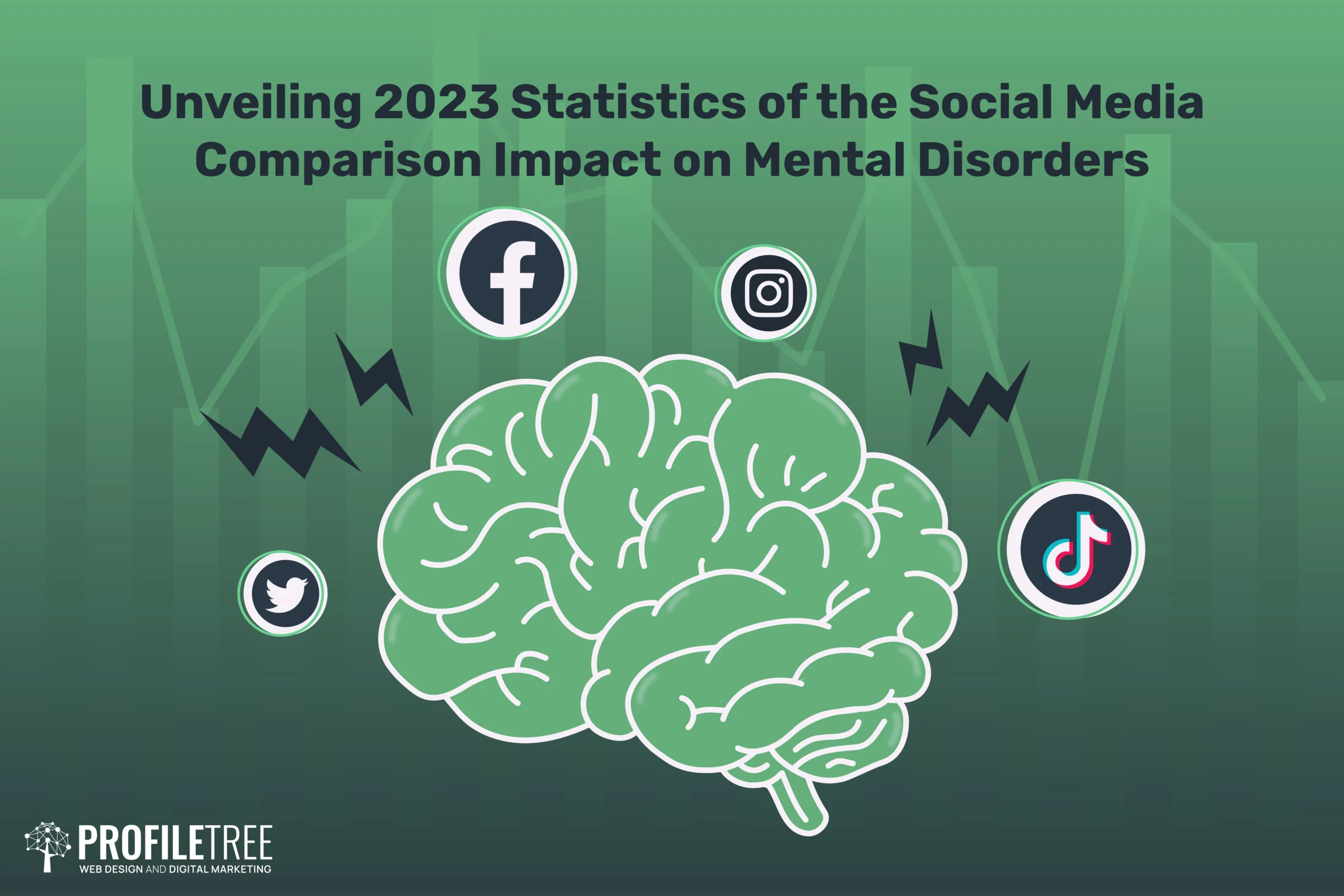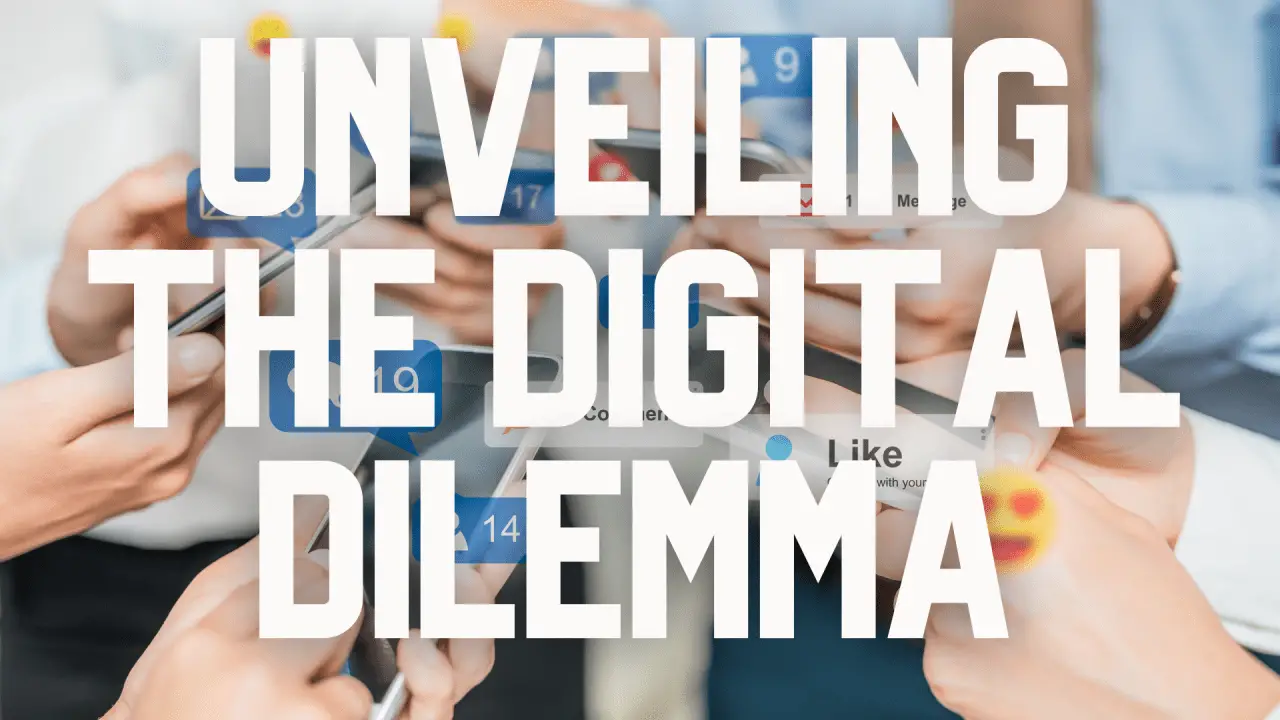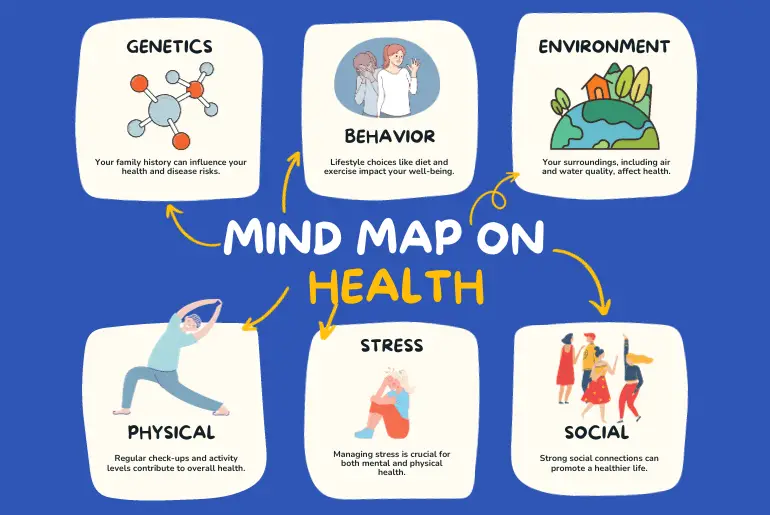Social media can impact mental health by causing depression and low self-esteem through prolonged use. Numerous studies suggest that social media activities are linked to symptoms of anxiety, depression, cyberbullying, addiction, and privacy concerns, especially in young people.
The constant exposure to curated online content can lead to feelings of inadequacy and comparison, affecting self-esteem and overall well-being. Additionally, the addictive nature of social media platforms can contribute to decreased face-to-face interactions and a sense of isolation. It is crucial to recognize the potential negative effects of social media on mental health and take proactive steps to mitigate these impacts for a healthier digital balance.
The Link Between Social Media And Mental Health
Social media has become an integral part of our daily lives, influencing our thoughts, behaviors, and emotions. The connection between social media usage and mental health is a topic of growing concern.
Negative Impact On Mental Health
- Social media activities linked to signs of depression
- Low self-esteem, especially among children and adolescents
- Cyberbullying, spread of misinformation, addiction
- Decline in face-to-face communication and social isolation
- Polarization, echo chambers, cyber stalking, and harassment
- Decrease in privacy, comparison, and envy
Positive Impact On Mental Health
- Platforms can provide support and community
- Access to mental health resources and awareness
- Ability to connect with like-minded individuals
- Share experiences, reduce stigma
Social media’s effects on mental health are complex, with both negative and positive outcomes. It is crucial to manage and balance our online interactions for overall well-being.

Credit: www.thehealthsite.com
Common Mental Health Issues Caused By Social Media
The pervasive use of social media has been linked to heightened anxiety, depression, and low self-esteem, particularly among young people. It can also lead to cyberbullying and addiction, affecting mental wellness negatively. This calls for the need to manage social media usage effectively for better mental health.
Depression And Anxiety
Social media can contribute to depression and anxiety due to the constant comparison with others’ seemingly perfect lives and the fear of missing out (FOMO).
Poor Sleep Quality And Sleep Difficulties
Excessive social media use can lead to poor sleep quality and difficulties in falling asleep, often caused by the exposure to blue light emitted by screens before bedtime.
Self-esteem Issues And Low Self-worth
Engaging in social media can result in self-esteem issues and low self-worth as individuals may constantly seek validation and approval from virtual interactions.
Addiction And Social Media
With the ever-increasing role of social media in our lives, it’s essential to understand the impact it has on mental health. The connection between addiction and social media is becoming more prevalent, raising concerns about its adverse effects. Recognizing the signs of social media addiction and understanding the associated consequences is crucial in addressing this issue.
Signs Of Social Media Addiction
It’s important to be aware of the warning signs that indicate a potential addiction to social media. Some common signs include:
- Excessive time spent on social platforms, often at the expense of other responsibilities
- Anxiety or irritability when unable to access social media
- Obsessive thoughts about social media use
- Neglecting real-life relationships in favor of online interactions
- Difficulty in controlling or reducing social media usage
Associated Consequences
Social media addiction can lead to various negative consequences, impacting one’s mental health and overall well-being. Some associated consequences include:
- Increased risk of depression and anxiety
- Feelings of isolation and loneliness despite being connected online
- Decline in face-to-face communication skills
- Comparative behaviors leading to low self-esteem
- Disruption of real-world relationships

Credit: www.tgnns.com
Protecting Mental Health While Using Social Media
Safeguard your mental well-being while navigating social media to prevent negative impacts on your mental health. Engage mindfully to avoid potential triggers and prioritize self-care routines for a balanced online experience. Remember, mental health is paramount in the digital age.
Setting Boundaries And Limiting Usage
One of the most effective ways to protect your mental health while using social media is by setting boundaries and limiting your usage. Establishing guidelines for yourself can help prevent excessive exposure to potentially harmful content and reduce feelings of overwhelm or anxiety. Consider the following strategies:
- Determine your time limits: Decide how much time you want to dedicate to social media each day and stick to it. Set specific time slots or timeframes during which you will engage with social media, and once your allocated time is up, close the apps or websites.
- Turn off notifications: Constant notifications can be distracting and disrupt your focus. Take control of your social media usage by disabling push notifications or limit them to only important updates. This way, you can avoid the constant urge to check your phone or computer for new notifications.
- Create tech-free zones: Designate certain areas or periods in your day where you avoid using any electronic devices, including social media. This can be during meals, before bedtime, or when spending quality time with loved ones. Use this time for self-reflection, relaxation, or engaging in offline activities.
- Unfollow or mute triggering accounts: Pay attention to how certain accounts or individuals on social media make you feel. If their content consistently triggers negative emotions or comparisons, it may be beneficial to unfollow or mute their content temporarily or permanently. Remember, your mental health comes first.
- Take breaks: Implement regular social media detoxes by taking breaks for a few hours, days, or even weeks. Use this time to recharge, connect with the real world, and focus on activities that bring you joy and fulfillment. You’ll likely notice an improvement in your overall well-being.
Seeking Support And Professional Help
If you find that social media is significantly impacting your mental health and you’re struggling to manage its effects on your own, it’s important to seek support and professional help. Don’t hesitate to reach out to trusted individuals in your life or consider the following resources:
- Talk to a therapist: A licensed mental health professional can provide guidance, coping strategies, and support tailored to your specific needs and challenges. They can help you navigate the impact of social media on your mental health and develop a personalized plan to improve your well-being.
- Join support groups: Connecting with others who are experiencing similar challenges can be incredibly beneficial. Look for online support groups or communities where you can share your experiences, gather insights, and receive encouragement from individuals who understand what you’re going through.
- Consult helplines or hotlines: If you’re in crisis or urgently need to talk to someone, helplines or hotlines specific to mental health or social media addiction are available. They offer immediate support and can guide you towards appropriate resources and next steps.
- Utilize mental health apps: Many mobile applications are designed to assist individuals in managing their mental health. These apps often include features such as guided meditation, mood tracking, and stress reduction techniques, providing additional support outside of therapy.
The Role Of Social Media In Youth Mental Health
Social media plays an influential role in shaping the mental health of today’s youth. With its pervasive presence in their lives, it’s important to understand both the positive and negative impacts it can have. Let’s explore the role of social media in youth mental health, highlighting the positive and negative influences it can exert.
Positive Influences Of Social Media On Youth
Social media platforms offer a variety of positive influences on the mental health of young individuals. Here are some ways social media can have a positive impact:
- Access to Supportive Communities: Social media provides a platform for young people to connect with like-minded individuals who share similar experiences and struggles. These online communities offer support, understanding, and a sense of belonging.
- Mental Health Awareness: Through social media, awareness about mental health issues is being spread. It allows young individuals to learn about different mental health conditions, their symptoms, coping mechanisms, and available resources for seeking help.
- Inspiration and Motivation: Positive role models and influencers on social media can inspire and motivate young individuals. They share stories of resilience, recovery, and personal growth, fostering a positive mindset and encouraging proactive steps towards mental well-being.
- Education and Information: Social media platforms can serve as sources of educational content related to mental health. Young individuals can access articles, podcasts, videos, and infographics about various topics, helping dispel myths and misconceptions surrounding mental illnesses.
Negative Influences Of Social Media On Youth
While there are positive aspects, it’s crucial to acknowledge the negative influences social media can have on the mental health of young individuals. Here are some concerns:
- Comparison and Envy: Constant exposure to carefully curated and filtered content can lead young people to compare themselves unfavorably to others. This can breed feelings of inadequacy, low self-esteem, and heightened anxiety.
- Cyberbullying and Harassment: Social media platforms can become breeding grounds for cyberbullying and harassment. Young individuals may face online bullying, which can have severe psychological consequences, leading to stress, depression, and even self-harm.
- Sleep Disruptions: Excessive use of social media can disrupt sleep patterns among young individuals. The constant need for validation and fear of missing out (FOMO) can contribute to sleep deprivation, which negatively impacts mental health and overall well-being.
- Unrealistic Body Image Standards: Social media often perpetuates unrealistic body image standards. Young individuals may develop body dissatisfaction and engage in unhealthy behaviors like crash dieting or excessive exercising, leading to eating disorders and negative body image.
It’s crucial for young individuals, their families, and society as a whole to be aware of the potential negative effects of social media on mental health. By promoting responsible usage and providing support networks, we can navigate the complexities of social media and ensure its impact is more positive than negative.

Credit: profiletree.com
Frequently Asked Questions Of How Mental Health Is Affected By Social Media
How Does Social Media Affect Mental Health?
Social media can lead to depression, anxiety, low self-esteem, cyberbullying, addiction, and social isolation.
How Does Social Media Affect Mental Health Statistics 2023?
The prolonged use of social media has been linked to depression and low self-esteem. It can also lead to cyberbullying, addiction, and a decline in face-to-face communication. Additionally, researchers have associated online social networking with psychiatric disorders and poor sleep quality.
What Are 5 Negative Things Social Media Does?
Social media has several negative effects, including cyberbullying, spread of misinformation, addiction, decline in face-to-face communication, low self-esteem, social isolation, privacy concerns, and envy.
What Are The Effects Of Social Media Addiction?
Social media addiction can lead to anxiety, depression, isolation, and a loss of connection to the real world and family relationships. It can also cause irritability and distance from others. Additionally, it may lead to poor sleep quality and difficulties in young people.
Conclusion
The impact of social media on mental health is undeniable. The negative effects of cyberbullying, addiction, and misinformation are evident. Additionally, the decline in face-to-face communication and the spread of envy and comparison further highlight the detrimental aspects. Understanding these effects is crucial for creating a healthier digital environment.











